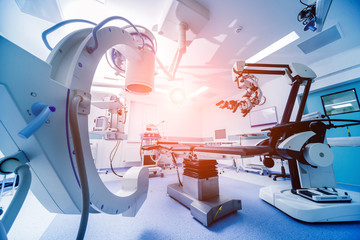Modern medicine has revolutionized healthcare, enhancing life expectancy, quality of life, and disease management. With advances in technology, pharmaceuticals, and medical research, healthcare professionals can diagnose, treat, and prevent conditions more effectively than ever before. Understanding the impact of modern medicine highlights its role in promoting wellness, combating diseases, and improving overall public health.

The Importance of Modern Medicine
Modern medicine encompasses all practices aimed at diagnosing, treating, and preventing illness. From routine checkups to advanced surgical procedures, it plays a vital role in maintaining physical and mental health. Medical advancements have transformed previously fatal diseases into manageable conditions, allowing millions of people to lead longer, healthier lives.
Preventive care is a key aspect of modern medicine. Vaccinations, screenings, and regular health checkups help detect diseases early, reducing the risk of complications and minimizing treatment costs. By focusing on prevention as well as treatment, modern medicine promotes overall well-being and improves community health outcomes.
Advances in Diagnostics
One of the most significant benefits of modern medicine is improved diagnostic capabilities. Early and accurate diagnosis is essential for effective treatment. Key advancements include:
- Imaging Technology – MRI, CT scans, and ultrasound provide detailed internal views, allowing physicians to detect abnormalities with precision.
- Laboratory Testing – Blood tests, genetic tests, and microbiology analyses identify infections, conditions, and genetic predispositions.
- Wearable Devices – Fitness trackers and health monitors provide real-time data on heart rate, blood pressure, and activity levels.
- Telemedicine – Remote consultations and digital health platforms increase access to healthcare, especially in underserved areas.
These diagnostic tools ensure timely interventions, improving recovery rates and overall outcomes.
Treatment Innovations
Modern medicine has introduced a wide range of treatments that were unimaginable in the past.
Pharmaceutical Advances
Medication development has addressed countless diseases, from infections to chronic conditions. Antibiotics, antivirals, and anti-inflammatory drugs prevent and treat illnesses effectively. Modern pharmacology also includes targeted therapies for specific diseases, improving efficacy and minimizing side effects.
Surgical Innovations
Minimally invasive techniques, robotic surgery, and advanced anesthesia have transformed surgical care. These innovations reduce recovery times, minimize complications, and enhance patient safety.
Chronic Disease Management
Modern medicine offers comprehensive solutions for chronic conditions like diabetes, heart disease, and hypertension. Continuous monitoring, medication, lifestyle guidance, and therapy options empower patients to manage their health effectively.
Mental Health Care
Advancements in mental health treatments, including psychotherapy, counseling, and medication, have improved emotional well-being and reduced stigma. Modern medicine emphasizes holistic approaches that combine mental and physical health.
Preventive Care and Public Health
Preventive medicine is a cornerstone of modern healthcare. Vaccinations, screenings, and health education programs help prevent outbreaks, reduce disease burden, and enhance longevity. Public health initiatives, such as sanitation improvements, nutrition programs, and anti-smoking campaigns, complement medical advancements by addressing environmental and lifestyle factors.
Early detection through screenings for conditions like cancer, diabetes, and cardiovascular disease significantly improves treatment outcomes. Preventive measures also reduce healthcare costs by addressing issues before they become severe.
Personalized Medicine
Modern medicine is increasingly moving toward personalized care. Genetic testing and molecular diagnostics allow healthcare providers to tailor treatments based on an individual’s unique genetic makeup. Personalized medicine ensures:
- Optimized drug efficacy and reduced side effects
- Customized treatment plans for complex diseases
- Early identification of genetic predispositions
- Enhanced preventive care strategies
This approach shifts medicine from a one-size-fits-all model to a targeted, patient-centered system, improving outcomes and patient satisfaction.
The Role of Technology in Modern Medicine
Technology drives many of the advancements in modern medicine. Electronic health records (EHRs) streamline patient data management, improving care coordination. Artificial intelligence (AI) and machine learning assist in diagnosis, treatment planning, and predictive analytics. Robotics enhances surgical precision, and telehealth platforms extend healthcare access worldwide.
Technology also supports medical research. Advanced data analytics, imaging, and laboratory automation accelerate the development of new treatments and therapies, expanding the possibilities of modern medicine.
Challenges in Modern Medicine
Despite tremendous advancements, modern medicine faces challenges. Healthcare access and affordability remain major issues in many regions. Overreliance on medications, antibiotic resistance, and rising chronic disease prevalence are growing concerns. Additionally, the integration of new technologies requires proper training, infrastructure, and ethical considerations.
Addressing these challenges involves public policy, education, research, and innovation. By focusing on equity, sustainability, and patient-centered care, modern medicine can continue to improve health outcomes for diverse populations.
The Future of Modern Medicine
The future of medicine promises even greater advancements. Emerging trends include:
- Regenerative Medicine – Stem cell therapies and tissue engineering aim to repair or replace damaged organs and tissues.
- Gene Therapy – Targeted gene modification offers potential cures for genetic disorders.
- Artificial Intelligence – AI-assisted diagnosis and treatment planning will improve accuracy and efficiency.
- Wearable and Remote Monitoring – Continuous health tracking enhances preventive care and chronic disease management.
- Global Health Innovations – Expanded access to vaccines, diagnostics, and treatment improves population health worldwide.
These developments suggest a healthcare landscape that is more precise, accessible, and personalized than ever before.
Modern medicine has transformed healthcare, providing tools, treatments, and technologies that enhance quality of life and longevity. From advanced diagnostics and surgical techniques to preventive care and personalized medicine, the benefits are extensive and life-changing.
By embracing innovation, prioritizing preventive care, and integrating technology, modern medicine continues to improve patient outcomes, reduce disease burden, and empower individuals to take control of their health. Whether managing chronic conditions, preventing illness, or exploring new therapies, modern medicine ensures a healthier and more vibrant future for all.
